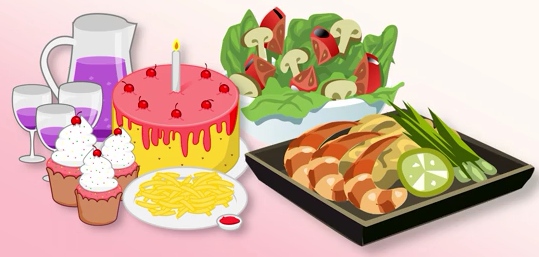(单词翻译:单击)
This is Everyday Grammar. I'm Kaveh.
欢迎收看《每日语法》栏目,我是卡维。
And I'm Lucija. And this episode is all about QUANTIFIERS.
我是露西佳,今天的节目我们讲讲量词。
Wow Lucija, you're really excited about today's topic. I am! QUANTIFIERS.
哇哦,露西佳,讲到今天的主题你很兴奋哪!是的,量词耶!
OK, what's going on with these quantifiers that are making you so excited?
好的,这些量词怎么了,让你这么兴奋?
Well, let me tell you. A quantifier is a word that shows an amount or number.
噢,我来告诉你。量词是表示数量或数字的词,
They give information about how much or how many of an item you are talking about.
量词传达的是关于你所说物件的数量多少的信息。
How much or how many? Like, how many people are coming over for dinner?
how much/how many?诸如:有多少人过来吃晚餐?
Or how much food do we need for tonight's dinner?
抑或今天的晚餐我们需要多少食物?

You've got it! There are quantifiers for COUNT NOUNS, NON COUNT NOUNS, and for both.
你理解了,数量词可以用来修饰可数名词、不可数名词,有些既可以修饰可数名词也可以修饰不可数名词。
The most popular quantifiers like SOME, MOST, PLENTY OF, ALL, and ANY are used with both count and noncount nouns.
最受欢迎的数量词有:some/most/plenty of/all/any,这些数量词既可以修饰可数名词也可以修饰不可数名词;
So, you should be safe with using these.
因此,用这些词修饰名词比较保险,例如:
He bought some furniture for the house. (noncount noun)
他为家里添了一些家具;furniture为名词不可数
Most Americans speak English. (count noun)
大部分美国人说英语;Americans为可数名词
I have plenty of food at home. (noncount noun)
我家里有很多食物;food为不可数名词
All children are special. (count noun)
所有的孩子都是特别的;children为可数名词
Do you have any juice? (noncount noun)
你有果汁吗?juice为不可数名词
All of these quantifiers are actually pretty interesting.
事实上,所有这些量词都相当有意思。
I told you. And we have plenty of time to go over all of them.
我告诉过你,而且我们有足够的时间把所有这些量词过一遍;
Or just some of them. But definitely most of them.
或者只是部分;但绝对是大部分。
And that's Everyday Grammar.
以上就是今天节目的所有内容。


